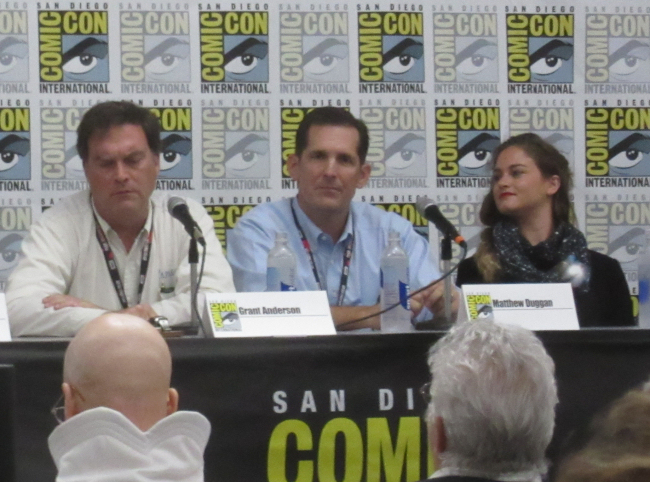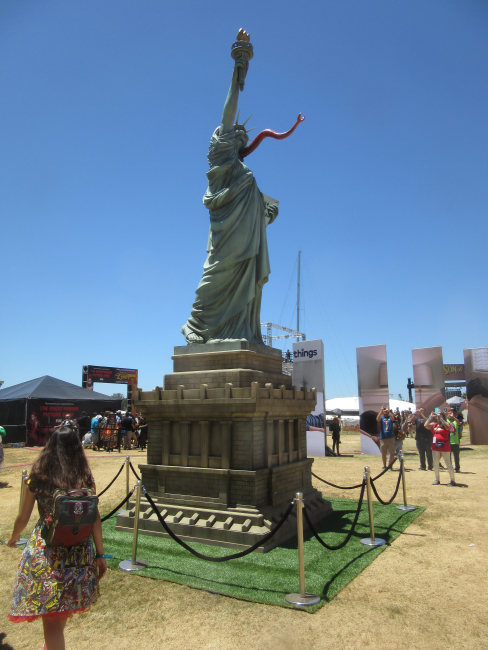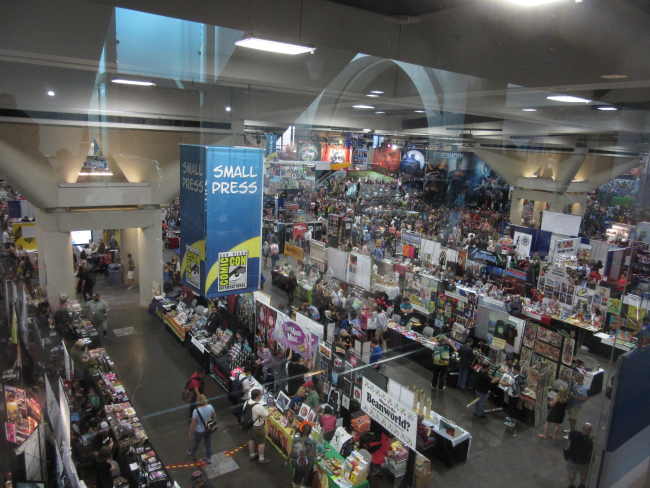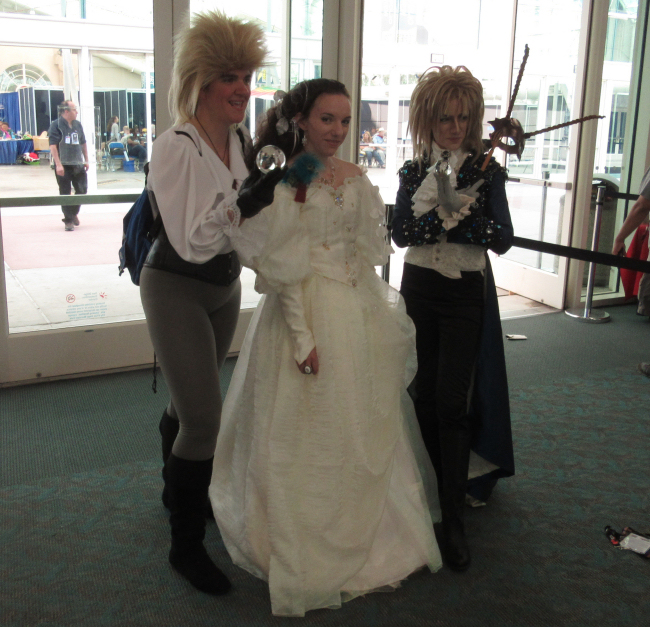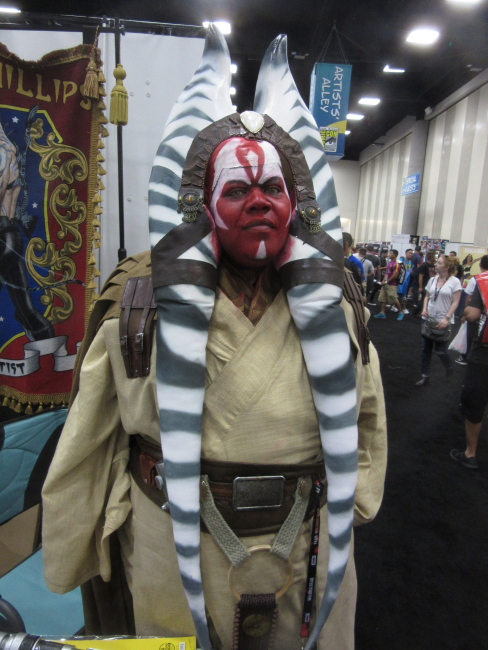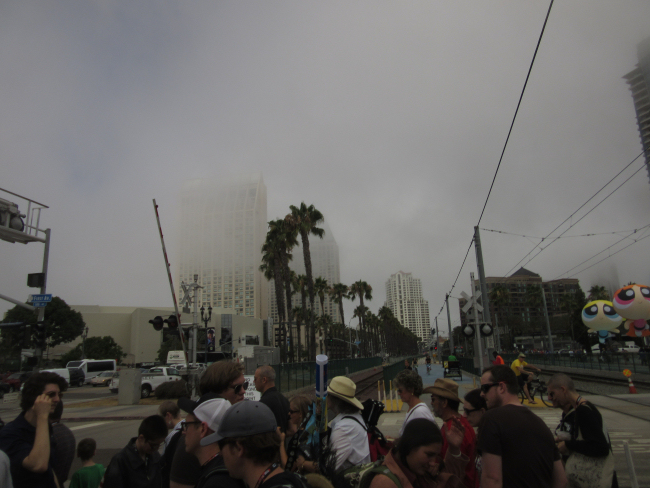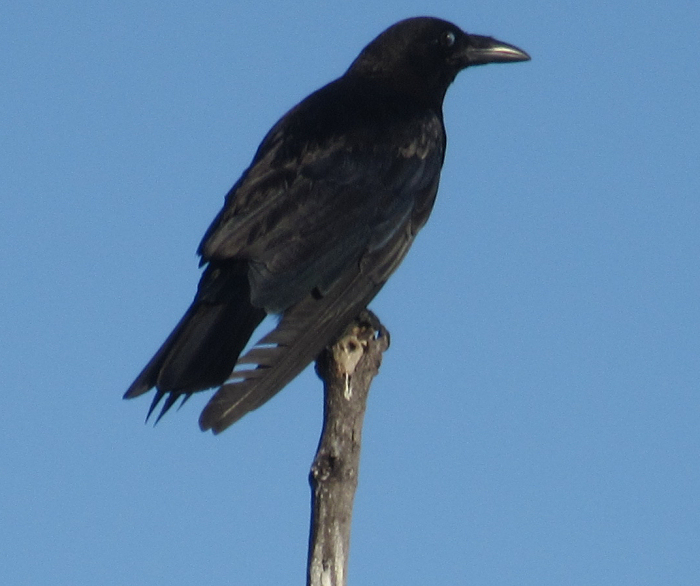
When I asked these two young ladies who they were dressed as they looked at me as if I was crazy. They explained they were both from Overwatch, the insanely popular new video game from Blizzard. I had heard of it but only because I'd read an article about people complaining one of the characters was too sexy. The game I expected to see all over the place, the game people said was all over the place, was Pokemon Go. But I didn't see it anywhere. Maybe I need those magic glasses called smart phones. Someone on the mental health and pop culture panel, though, did remark that Pokemon Go was beneficial for people with social anxiety because strangers have a tendency to help one another.
I saw two panels about video games this year.
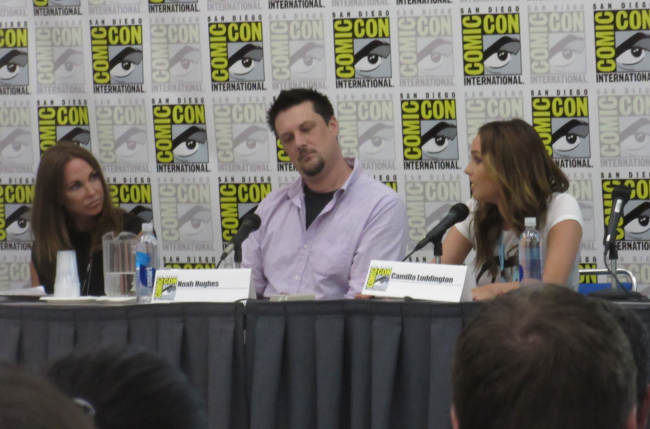
I think this picture says a lot about the Tomb Raider twentieth anniversary panel. On the left is Debbie Lash, who was in charge of the models hired to promote Tomb Raider since the beginning of the franchise, on the right is Camilla Luddington, the voice and motion capture actor for the current incarnation of Tomb Raider's protagonist, Lara Croft, and in the middle is Noah Hughes, current franchise creative director. He was intensely nervous the whole time. When asked about the defining characteristics of the Tomb Raider story, Hughes said it was about "the human spirit" and the "desire to discover." Lash distilled it as representing, "Girl power" and invoked the Spice Girls. She said in the first years following the first Tomb Raider release, she worked with models who could expect a minimum of one hundred days of work including international travel. She said it was a little like working with a pop star.
She seemed to have some very fond memories of working on Tomb Raider promotion. She singled out a cosplayer in the audience who is apparently known for cosplaying Lara Croft going back years. She asked the cosplayer to stand for the audience.
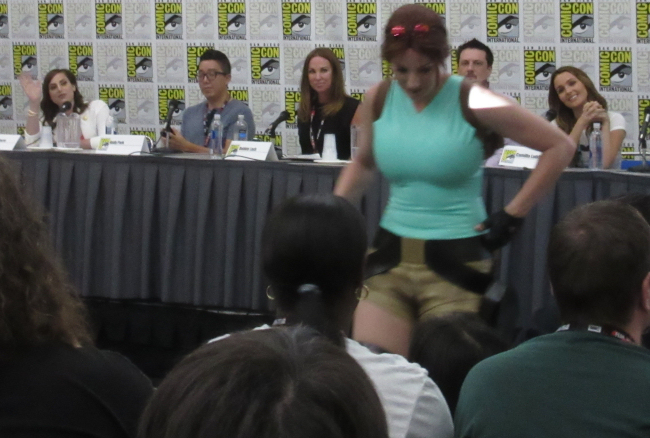
Lash seemed particularly proud of the latex top which she developed with a well known costume designer she knew who happened to specialise in latex.
When it was time for the panel to take audience questions, a young woman thanked Hughes for making the current incarnation of Lara Croft, who has more realistic proportions and does not wear latex, less sexualised.
In responding, the increasingly nervous Hughes, without referencing any sexualisation of the character, stumbled through explaining that he sought to bring out dimensions of personality in Lara, to make her more "grounded", necessitating a more "believable" style.
Luddington did not seem remotely nervous. While admitting that she had very little knowledge of Lara's biography, she said she felt like Lara was a part of her and that for one emotionally intense scene she tapped into the feelings she'd had when she'd lost someone in her own life.
Also on the panel were a former Lara Croft cosplayer and current community manager for the franchise, Meagan Marie, and the artist for the tie-in Tomb Raider comics, Andy Park.
Marie said to her Lara Croft's story was about the need to "push through flaws and accept them." Park referred to the character as "Iconic, sexy," and "strong". He talked about quitting art school in order to focus on a career illustrating Lara Croft comics.
Personally, I do prefer more realistic proportions and I think the latex top is kind of ugly. But Lara's new look succeeds a bit too much at making her look unremarkable. Sometimes it's nice for a character not to look boring and one way to go in the opposite direction of boring is towards sexy which, I humbly submit, is not an entirely bad thing.
After this panel, I saw one on playing video games professionally. Everyone on the panel was extremely serious about it, except Dennis Fong, aka "Thresh" (on the right).

Arguably the world's first gamer superstar, Thresh rose to prominence playing 1996's Quake. Since carpal tunnel put an end to his gaming career, he has spent his time as a commentator and running several gaming related businesses.
The panel talked about how gaming communities have changed since Thresh's time, moving from community LANs and now centring in community forums where posters help one another focus on building skills. One of the panellists said, in scouting for players, he was looking for "players not personalities", explaining how the people who talked the best in game chat weren't necessarily the best at playing, the best gamers often times being introverts. One of the panellists remarked that young, potential pro-gamers face "downward pressure from society" that doesn't respect the idea of someone making a career out of playing video games, advising players that they should "pay them no mind."
Jace Hall, CEO of Monolith Productions, said he believes people should be able to earn money for doing what they want. I have to say, I went into this panel with no particular opinion on the viability of playing video games as a career, now I think it looks really obnoxious.
Hall spoke angrily against cheating in video games. Several of the panellists talked about the importance of building their skills by playing as much as possible. But the panellists also emphasised that playing a lot is useless if you don't learn from experience so it was important to analyse. Thresh, who said he didn't spend nearly as much time playing as modern players, said it was important to "find your superpower."
"So, Setsuled," you might be saying, "are you almost done with these Comic Con reports?"
Nope!



